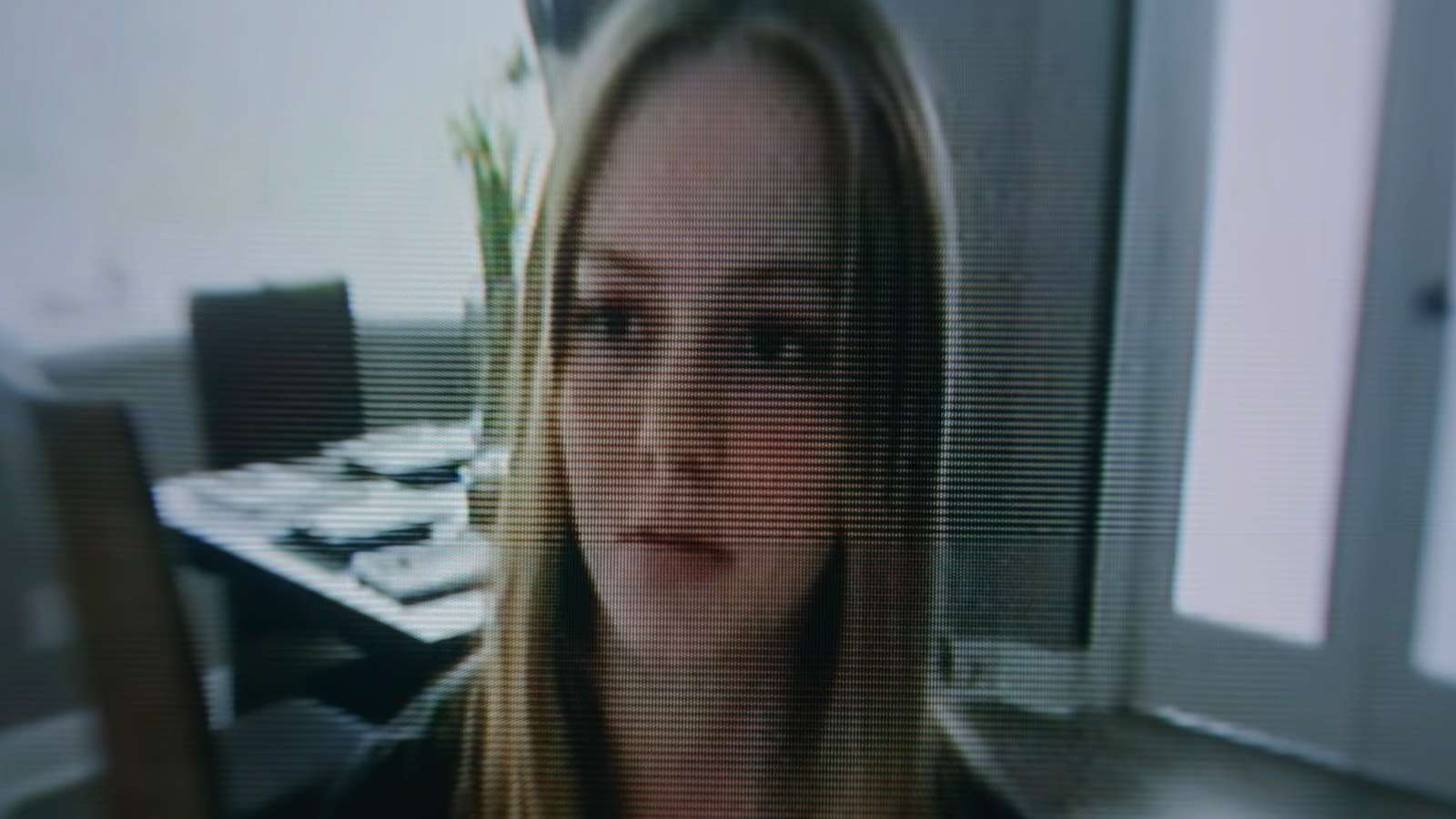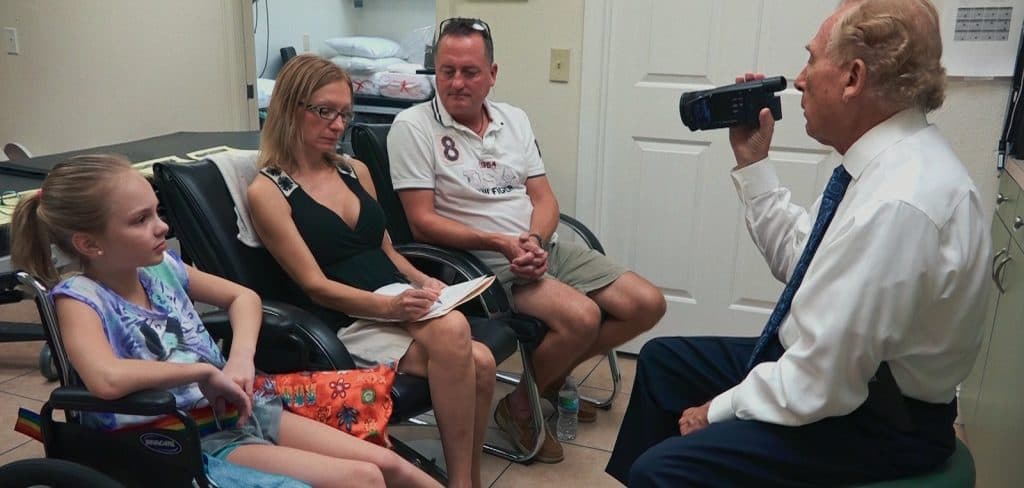Take Care of Maya: The shocking true story behind Netflix documentary
 Netflix
NetflixHere’s everything you need to know about Take Care of Maya, the poignant 2023 documentary on Netflix. Read on to find out about where Maya Kowalski and her family are now, what happened in the $261 million court case, and more.
Netflix’s documentary section features numerous films and series that hold up a magnifying glass to the issue of injustice, from 13th and Victim/Suspect to Making a Murderer and Broad Daylight: The Narvarte Case.
It’s always tough to watch, but important nonetheless, highlighting the inequality and corruption that permeates society while often offering a glimmer of hope or a call to action.
Last year saw the release of a documentary film called Take Care of Maya, which is streaming on Netflix now. Here’s what it’s about, the true story of the Kowalskis, and where Maya is now. Warning: Some may find this content distressing.
What is Take Care of Maya about?
Directed by Henry Roosevelt, Take Care of Maya on Netflix is a documentary movie that tells the story of Maya Kowalski from her family’s perspective.
You can watch a clip from the documentary below:
As per Tudum: “In 2016, Jack and Beata Kowalski took their daughter, Maya, to a hospital in St. Petersburg, Florida. The 10-year-old was admitted to the ER with a severe stomach ache. Instead of a quick hospital stay, Maya was taken from her parents and kept there.
“The tragedy that unfolded next is the subject of the investigative documentary Take Care of Maya, a troubling exploration of how a fractured healthcare industry tore a family apart.”
The shocking true story behind Take Care of Maya
The devastating true story behind Take Care of Maya centers on Maya Kowalski, whose ordeal started as a child, one who is said to have experienced debilitating pain growing up. While in hospital in 2016, Maya was placed in state custody and not allowed to see her parents for three months. During this time, her mom, Beata, died by suicide.
In 2016, Maya’s parents Beata and Jack Kowalski took their then-10-year-old daughter to Johns Hopkins All Children’s Hospital in St. Petersburg, Florida, as she had been suffering from extreme abdominal pain.
Beata, a registered nurse, requested that the doctors administer a large dose of ketamine, explaining that she and Jack believed Maya had complex regional pain syndrome (CRPS) and that it was the only way to relieve her of the agony.
It should be pointed out that this diagnosis didn’t come from nowhere – a local anesthesiologist named Anthony Kirkpatrick, who runs a center focusing on CPRS, diagnosed Maya and suggested the ketamine infusion treatment.
However, staff raised concerns about the request and the high recommended dose of the drug, and soon enough Dr. Sally Smith, the medical director of the child protection team for Pinellas County, was brought in to evaluate the case.
 Netflix
NetflixAs reported by The Cut: “Smith discovered that Maya’s parents had once taken her to Hospital San José Tecnologico in Monterrey, Mexico, for a five-day procedure that required her to be sedated and intubated to receive high-dose infusions of ketamine.”
But it went on to say that Smith “tended to interpret cases aggressively,” and that “children in Pinellas are removed from their homes at one of the highest rates of Florida’s 67 counties,” in a state that already has high rates compared with the rest of the US.
Despite a reminder from Kirkpatrick that he had suggested the treatment, Smith believed Maya was a victim of abuse and Beata was diagnosed with Munchausen syndrome by proxy, a mental illness whereby the caretaker of a child either makes up fake symptoms or causes real ones to make it look like the infant is sick.
Even though she was visibly in agony, accusations were made that Maya wasn’t in pain. A concerned Kirkpatrick even wrote to a colleague, stating, “I cautioned Dr. Smith about accusing a family member of criminal conduct as she moves forward with her investigation,” adding that it “could result in needless and permanent harm to the child and family.”
Nonetheless, Beata and Jack were ordered to leave the hospital – Maya was no longer in their care, despite her pleading to have her mom and dad at her side. Even though a court-ordered evaluation ruled that Beata didn’t have Munchausen’s, Maya was kept under state custody.
The battle to get Maya back was tough on the whole family, with Beata not knowing where to turn, as is shown in a clip from Take Care of Maya, which you can watch below:
Tragically, after nearly three months, Beata died by suicide. In a note, cited by People, she said: “I’m sorry, but I no longer can take the pain of being away from Maya and being treated like a criminal. I cannot watch my daughter suffer in pain and keep getting worse.”
Just five days after Beata’s death, Maya was released back into the care of her father. Understandably, the Kowalskis have since filed a lawsuit against Johns Hopkins, which you can read more about below.
Take Care of Maya explores the case in more detail, looking at the devastating impact the ordeal has had on the family while putting the US healthcare and childcare systems under the spotlight.
Where is Maya Kowalski now?
Maya Kowalski, now 18 years old, is still living with her father Jack and brother Kyle in Florida. Her family recently won $261 million in a lawsuit against Johns Hopkins All Children’s Hospital, seeking justice over what happened to Beata.
Greg Anderson, an attorney for the Kowalskis, told People in the same interview: “The only reason that we are able to bring this case [to trial] where every other attempt [of a similar case] in history has failed is because Beata documented everything and read everything.
“I watched the Kowalskis disintegrate and then try to move on without the linchpin – the wife and mother. Beata was a force of nature in taking care of her family. The depth of loss is beyond words.”
Testimony for the $200 million trial began on September 22, 2023, with Anderson telling the court (via the Independent): “Maya Kowalski was falsely imprisoned and battered, she was denied communication with her family.” Maya was left in tears as he described how Beata had died by suicide after being unable to see her child and while facing abuse allegations.”
Howard Hunter, representing Johns Hopkins All Children’s Hospital, countered the claims. “The evidence will ultimately show that these doctors, nurses, and hospital staff acted reasonably and prudently to treat a difficult and challenging case they were presented with and did it consistently over three months,” he said.
Jack testified that the hospital did not allow doctors to see Maya or allow gifts from her family including Holy Communion. He also claimed he was threatened with arrest when trying to see his daughter. Maya’s father continued his testimony on October 3. According to FOX13, he denied the accusations that his wife slipped ketamine through holy water and wafers. As part of his testimony, the jurors read one of the two notes left behind by Beata, one saying the custody judge was responsible for the downfall of their family and bankruptcy.
On October 5, according to FOX13, social worker Catherine Bedy gave testimony in which she claimed she witnessed Maya’s mother demand ketamine for her daughter. Meanwhile, Maya’s attorney, Mark Zimmerman, claimed the hospital and social worker put up barriers to limit contact with his client.
On October 9, Maya took the stand, where she said (via FOX9): “I remember that my mom was on this phone call and the person who she was speaking to… claimed that I never asked to speak to my mom. That I was doing fine. I was ok in my room. I hadn’t had any questions about why my parents weren’t allowed to see me. And that infuriated me so much because all I did for days on end was demand to speak to my parents. That’s all I wanted to do, and I most certainly wasn’t just sitting in my room. I was crying.”
On November 9, a decision was made: jurors found John Hopkins liable on all counts, including false imprisonment, battery, and intentionally inflicting emotional distress on both Maya and Beata. The Kowalskis were awarded $211 million in damages. A further $50 million in punitive damages was given that evening, bringing the total to $261 million.
Hunter said the hospital plans to appeal, saying in a statement following the verdict: “The evidence clearly showed that Johns Hopkins All Children’s Hospital followed Florida’s mandatory reporting law in reporting suspected child abuse and, when those suspicions were confirmed by the district court, fully complied with Department of Children and Families (DCF) and court orders.”
He added: “The facts and the law remain on our side, and we will continue to defend the lifesaving and compassionate care provided to Maya Kowalski by the physicians, nurses and staff of Johns Hopkins All Children’s Hospital and the responsibility of all mandatory reporters in Florida to speak up if they suspect child abuse.”
According to the Independent, Maya’s attorney has since filed a sexual assault complaint against the hospital, claiming a “man who appeared to be a doctor came into her room and pulled down her pajamas and underwear and stared at and touched her private parts.” Anderson said: “Maya suppressed this until about four weeks ago, [but] she did put in some notes to both the psychiatrist there at the time Dr. Katzenstein and later to Dr. Henschke, the two female psychiatrists that she saw along the way.”
The legal team for the hospital released a statement which reads: “These allegations originally arose during trial and were not admitted into the case. As soon as the hospital became aware of the allegations, and in accordance with their policies, they immediately initiated an internal investigation and contacted law enforcement last month.
“Federal privacy laws restrict Johns Hopkins All Children’s Hospital from sharing more, but the hospital takes allegations of this nature very seriously and always puts the safety of their patients above all else.”
In January 2024, Judge Hunter Carroll released an order decreasing the Kowalskis’ $261 million payout by $47.5 million – however, she also denied Johns Hopkins All Children’s Hospital’s motion for a retrial.
We’ll be sure to keep this post updated if and when new developments arise.
Take Care of Maya is available to watch on Netflix now. And for more true crime, check out all the documentaries hitting streaming this month.